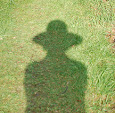I am having a very quiet day as Alastair is with us today. He is ill with a bug and cannot go to school. He’s a quiet lad and quite happily plays in his bed (while I make him keep drinking).
So while I have a moment I must share with you something that made me smile recently. He arrived here after school a bit cheesed off (unusual for him). I think the problem was a little boy was egging him on and he was having none of it. He stood in the middle of the kitchen and made a passionate "speech":
So while I have a moment I must share with you something that made me smile recently. He arrived here after school a bit cheesed off (unusual for him). I think the problem was a little boy was egging him on and he was having none of it. He stood in the middle of the kitchen and made a passionate "speech":
“Nobody listens to me!
The Nursery Lady doesn’t listen to me!
Even the Other Nursery Lady doesn’t listen to me!”
The Nursery Lady doesn’t listen to me!
Even the Other Nursery Lady doesn’t listen to me!”
Now I recently bought myself a book called Elements of Eloquence by Mark Forsyth.
....Off-at-a-tangent for a moment while I explain the book....
It's about words and it’s about grammar but I
would say it is basically about Rhetoric. By that I mean it is about
how words are used in their delivery. If rhetoric is about the art of
persuasive speaking, then this book is about the devices that are used.
We all know the more common ones: hyperbole or exaggeration “If I’ve told you once, I’ve told you a thousand times!” and alliteration “dead as a door-nail”.
However I recognized that Alastair, in his speech the middle of the kitchen floor, used a rhetorical device called epistrophe! It means ending each sentence with the same word.
Have we a budding orator here?
And while I am on the subject, at first I thought I was hearing a Winston Churchill orator-in-the-making. No... Churchill was good at a different rhetorical device called anaphora, i.e. starting each sentence with the same words.
“We shall fight on the Beaches
.....
.....
We shall fight in the hills.
We shall never surrender.”
This is part of a longer speech given to Parliament in June 1940.
We all know the more common ones: hyperbole or exaggeration “If I’ve told you once, I’ve told you a thousand times!” and alliteration “dead as a door-nail”.
However I recognized that Alastair, in his speech the middle of the kitchen floor, used a rhetorical device called epistrophe! It means ending each sentence with the same word.
Have we a budding orator here?
And while I am on the subject, at first I thought I was hearing a Winston Churchill orator-in-the-making. No... Churchill was good at a different rhetorical device called anaphora, i.e. starting each sentence with the same words.
“We shall fight on the Beaches
.....
.....
We shall fight in the hills.
We shall never surrender.”
This is part of a longer speech given to Parliament in June 1940.





No comments:
Post a Comment